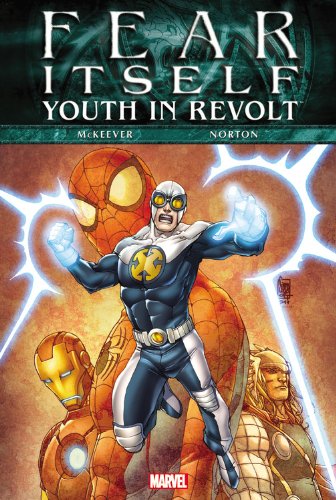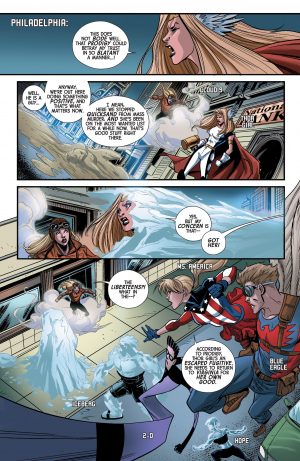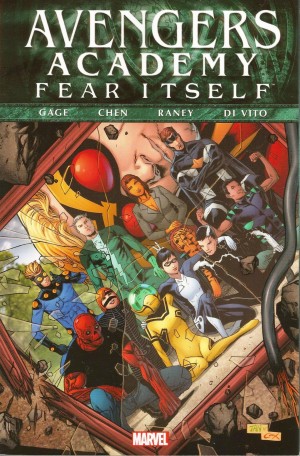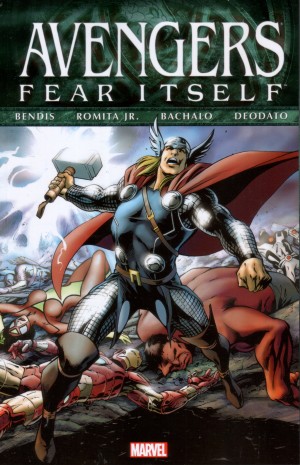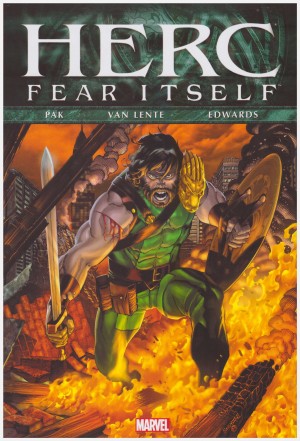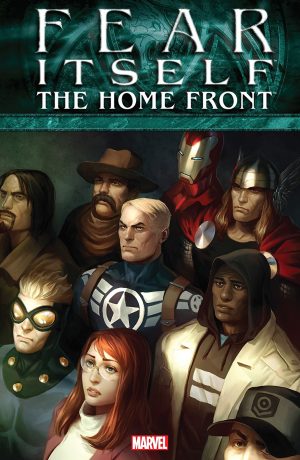Review by Ian Keogh
Youth in Revolt starts with an interesting idea, but to begin with may not make not much sense to those not intimately acquainted with Marvel’s complex continuity. A lot of younger superheroes were forced to register with the government and undertake training before being allocated to teams acting as protectors of individual US states. That programme dissolved due to alien infiltration, and now humanity’s at crisis point once again. While the long established heroes are fighting the effects of powerhouses made even more powerful by alien hammers (see Fear Itself) someone has to protect ordinary people across the country.
It’s a broad premise, and Youth in Revolt eventually falls victim to that as the focus rapidly sprawls out of control. More and more youthful heroes are introduced as if Sean McKeever has a checklist to fulfil. Some may only be required for a couple of panels, but they’re still there and named. Just finding the reference for them all must have driven artist Mike Norton to alcohol. As it is he’s professional, but this hardly comes across as the story he’s waited his life to illustrate.
The sprawl is a shame, as there are a few good ideas within Sean McKeever’s plot that bear greater investigation, and would have been better served with more space. One hero can no longer cope with the responsibility thrust on their shoulders. Another seems at home making combat decisions with appalling consequences. One has absolutely no trust of any official representation. Are they paranoid or justified? None of these subplots are allocated the space to play them out effectively, and all too often just as something becomes interesting the action switches to another bunch of newcomers, or the plots are resolved in unimaginative fashion. Standing atop this unwieldy pyramid is Prodigy, a character others have faith in due to his very public stances on previous issues and he’s well characterised as summing up the moral message of the series, which involves stepping up to the plate and helping others in moments of need.
Something a little more imaginative and more focused might have worked, but this is a missed opportunity, with few characters actually doing enough to appeal to their fans. To cap everything, an ending that’s supposed to be funny comes across as feeble.
